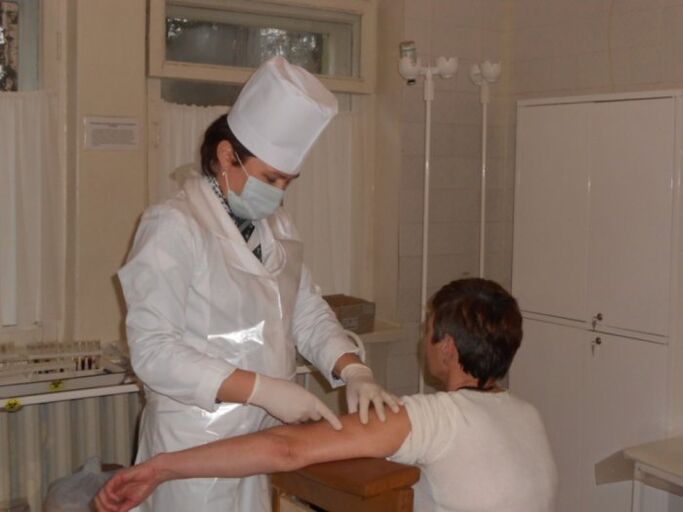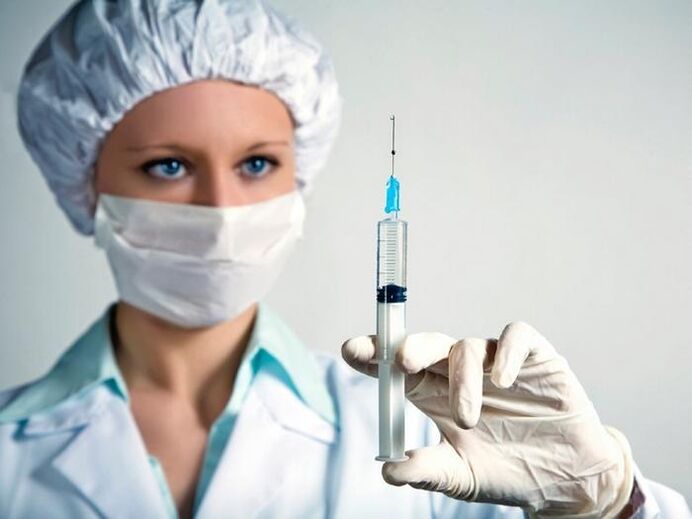Mass vaccination of the population against various diseases is approved by the Ministry of Health. However, if previously the vaccination cycle and medical circle were 3-5 names, now the population is offered vaccinations against other diseases such as influenza, papillomavirus, etc. against. Of course, in this case not only children but also adults. they are vaccinated. This raises the question of whether it is possible to drink after vaccination and, if so, why.
Important: All adults need to understand that alcohol and vaccination are completely incompatible concepts. The interaction of administered drugs with ethanol molecules can lead to the most unexpected results, even death.
Vaccination: definition

Vaccination is the process of injecting a microscopically low dose of a disease agent into a human body. At such doses, the vaccine is incapable of inducing complete onset of the disease, but is very active in stimulating immunity and forcing it to resist introduced pathogens. Thus, the body's immune cells memorize a harmful and potential substance and produce antibodies in non-antibodies for a lifetime or for a period of time.
Important: The most important condition for vaccination is that the patient is completely healthy. Only then does the human body respond correctly (predictably) to vaccination. When a person's immunity is weakened by a disease or other external factors, a defect in the immune system occurs and the pathogens introduced lead to the activation of the disease against which the patient has been vaccinated.
That’s why for those who want to know if you can drink alcohol after vaccination, the answer is clear: No! Alcohol (beer, vodka and many other beverages) is a toxic and debilitating factor in the body.
Modern vaccination: types and purpose of vaccinations

To date, there is a list of vaccines that are intended for compulsory or voluntary vaccination. So we distinguish the following:
- Chickenpox (chickenpox). It should be noted that this type of illness is more easily and easily tolerated by preschool / primary school children. The transmission of these types of diseases results in lifelong immunity. However, if a person did not have chickenpox in childhood, then in adulthood the disease has a severe toxic effect on the body and affects the central nervous system. That is why an adult who has not had smallpox should be vaccinated. Especially women.
- Rubella, measles and mumps. This vaccine is given as an injection to preschool and school children. However, if an adult has not been vaccinated during childhood and has not suffered from such diseases, it is recommended that they be vaccinated at an older age.
- Whooping cough, tetanus and diphtheria. This vaccination is given once every ten years in a person's life.
- Vaccination against various forms of hepatitis. Moreover, each patient can voluntarily choose this type of vaccine and what type (s) of hepatitis they want to be vaccinated against. Thus, the hepatitis B vaccine is indicated for those who have sex and are in constant contact (treatment) with injections. Hepatitis A vaccination should be given to all healthcare workers, drug addicts and patients with liver disease (recommended).
- Papillomavirus (HPV). This vaccine is recommended for all women aged 11 to 26 years. In this case, the vaccination is performed three times.
- Influenza vaccination. This type of vaccine is recommended for both adults and children. Such vaccinations are relevant during the seasonal outbreak of influenza pandemics. It is better to have such a vaccine for those who often stay in places of mass (high) congestion. It is worth noting that drinking after the flu vaccine as well as other vaccinations is strictly forbidden.
- Vaccination against encephalitis. It protects the adult from a terrible nerve-infectious disease carried by a tick.
- Vaccination against rabies. It is the only vaccine given after an event that poses a potential risk to a person. That is, after an animal attacked a human. In this case, it is categorically impossible to drink alcohol after vaccination because microscopic doses of the deadly virus are injected into the human body for 90 days. It is necessary to give up alcohol completely during this period.
Avoid alcohol after vaccination

Doctors strongly prohibit alcohol consumption after vaccination. This strict recommendation is due to the fact that ethanol molecules are a serious, if not colossal, burden on the human immune system. Therefore, if the patient is interested in the question of whether alcohol can be drunk after vaccination, the answer will be clear - no! Nevertheless, most patients may wonder how much they should not drink after a medical procedure. Here, doctors recommend that you refrain from consuming alcoholic beverages for three days after vaccination. Ideally, it is best to stay for up to 10 days. Rabies vaccination is an exception. Here the vaccination period is three months, the period of strict and unconditional abstinence should be 9 months. Three of them are to be vaccinated, and for the remaining six months, the immune system will fight the pathogens of the introduced rabies. Alcohol can have a negative effect in this case, including death.
Possible complications of alcohol vaccinations

It is worth knowing that each vaccine has its own specific effects on the human body. Therefore, do not drink alcohol after vaccination to avoid eradication of any adverse reactions. Thus, in some cases, the following manifestations may occur after vaccination:
- Hepatitis B vaccination may cause joint pain, fist reflexes or allergies.
- During rabies vaccinations, the patient may experience itching, headache and redness.
- It is worth noting that vaccination against tetanus strongly suppresses the immune system, so it is strongly not recommended to stop with alcohol.
Important: Keep in mind that ignoring the recommendations of healthcare professionals and consuming alcohol after vaccination can significantly mask the negative effects of the body on the vaccine itself. As a result, if any complications occur, the patient loses time while doctors try to figure out the real cause of the symptoms.
It should be borne in mind that ingestion of alcoholic beverages in the context of vaccination may lead to the development of such pathologies:
- Disorders of the gastrointestinal tract (constipation, diarrhea, dysbiosis);
- Escherichia coli;
- Allergic reactions;
- Increased body temperature and chills;
- Lung and respiratory diseases;
- Nausea and vomiting;
- Decreased activity, general weakness;
- Head and joint pain;
- exacerbation of any chronic disease;
- Quincke edema and anaphylactic shock.
Remember: be attentive and condescending to yourself and your health. Now you know why not drink or even drink a little after vaccinations.































